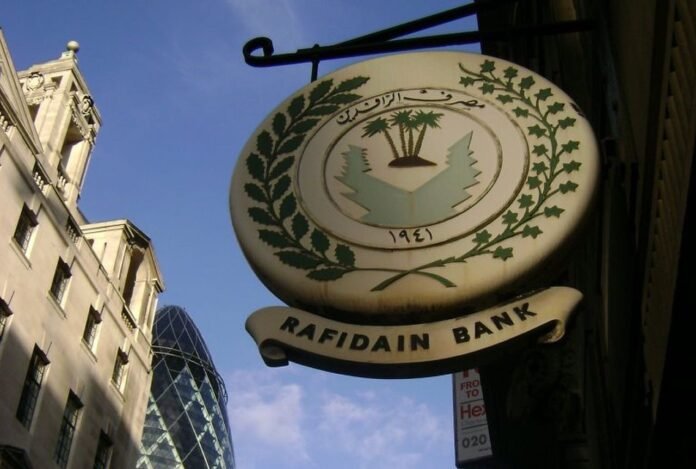Rafidain Bank acted quickly to protect Iraq’s financial stability after new US sanctions targeted the banking sector. The state-owned bank shut its office inside the Popular Mobilization Forces Directorate and moved accounts to another Baghdad branch.
Officials confirmed that the Central Bank of Iraq approved the closure through its Department of Supervision. The decision followed US sanctions on Al-Muhandis General Company, the PMF’s economic arm. Several Iraqi financial figures and companies also faced penalties over alleged links to Iran’s Revolutionary Guard. Baghdad condemned the sanctions as unilateral and damaging.
Soon after, Rafidain Bank took another major step abroad. Yemen’s Information Minister confirmed the shutdown of Rafidain’s branch in Yemen. The move came after suspicions of the branch funding Ansarallah, also known as the Houthis. The United States lists that group as a terrorist organization.
Meanwhile, tensions grew on social media. US Congressman Joe Wilson warned that Rafidain Bank could face sanctions next. His post used an hourglass emoji and the phrase “time is running out.” The comment sparked new concerns about Iraq’s financial stability.
A 2025 World Bank report added to the pressure. It revealed that over thirty Iraqi banks faced restrictions on dollar transfers. These actions followed alleged ties to Iranian networks and armed factions. Each sanction created more strain on Iraq’s financial stability and complicated the Central Bank’s operations.
Despite the rising tension, Rafidain Bank assured clients of full compliance. It continues to follow all international financial regulations and works closely with the Central Bank. Economists warned that more sanctions could harm trust and delay Iraq’s recovery.
Government officials, however, remain determined. They stress that protecting Iraq’s financial stability is their highest priority. Authorities are now engaging international partners to ease pressure and prevent deeper economic harm.


